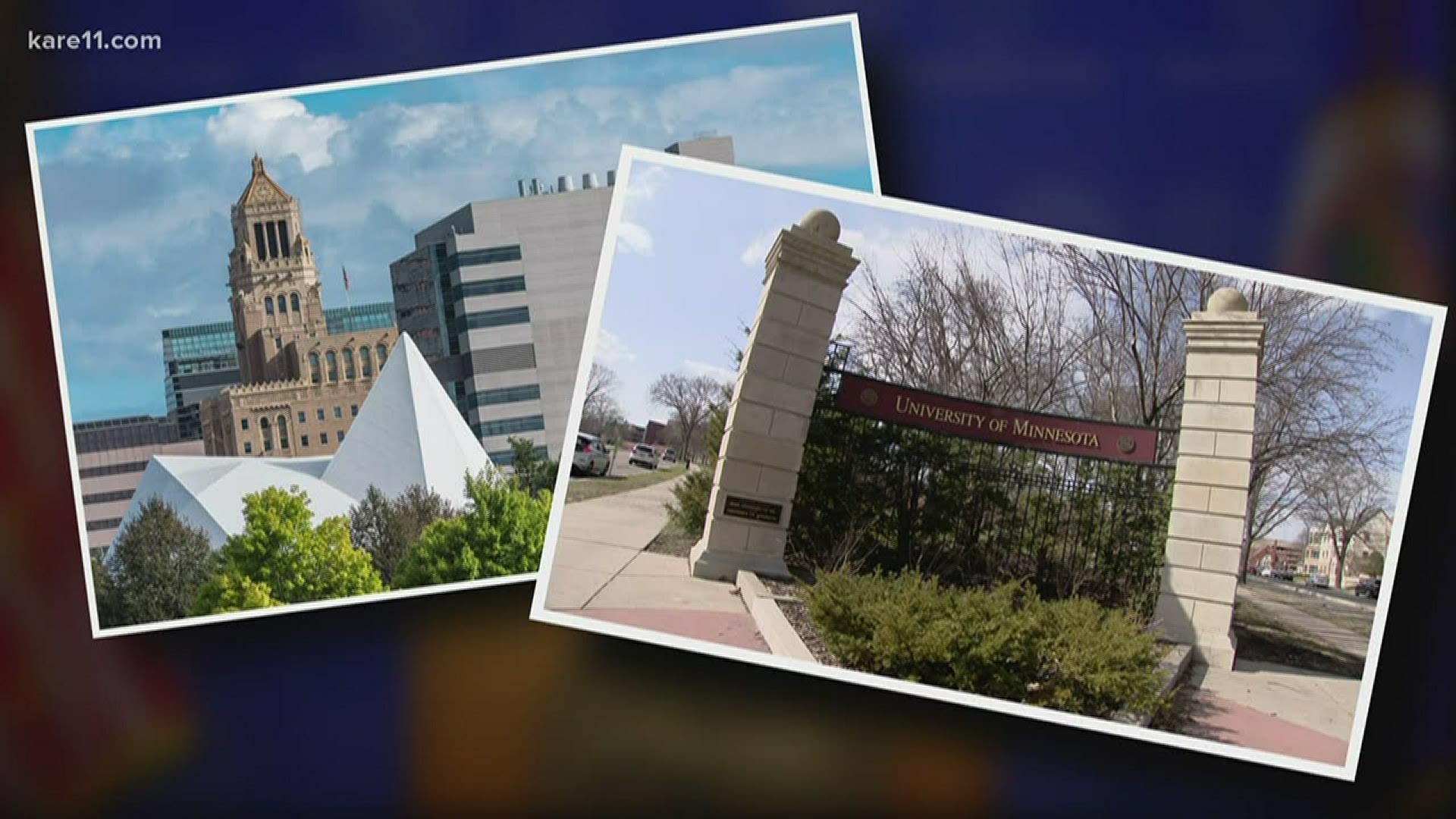MINNEAPOLIS — Two weeks after the Mayo Clinic and the University of Minnesota announced a coronavirus testing effort with the state of Minnesota, it's finally approaching the 5,000 tests per day that was promised, but it's still far short of the Governor's testing moonshot.
KARE 11 Reporter Kent Erdahl spoke to Dr. William Morice II, President of Mayo Clinic Laboratories, to get a progress report:
Kent Erdahl: "Realistically, how long do you think it will be before we hit that 20,000 tests a day?"
Dr. William Morice II: "I would say within the month of May, or by the end of the month, we'll be nearing that number, if not at it."
Erdahl: "I think everybody just wants to know, when can I get tested to see if I have had it and if I'm immune."
Dr. Morice: "I get that question a lot, including in my own house, so yeah, I'm feeling it."
In order to get that question answered, Dr. Morice says it's going to take a shift in how the state and healthcare providers approach testing. He says criteria for who gets a test is going to have to loosen.
Dr. Morice: "When we first got this with COVID, two months ago now, everything we heard was that there's not enough testing, there's not enough testing. That certainly was true and there still are limitations, particularly on the molecular testing side, but we have to now kind of flip that mentality to do as much testing as possible. Now we understand the virus is spread by people before they have symptoms, so the best way to block the spread is to test people very early, so we can at least find out how many people have been exposed to it."
Erdahl: "One big piece of that, that's not counted so far is the serology testing, the blood testing. Can you tell me, why aren't we hearing about that yet?"
Dr. Morice: "There's still some confusion about the best way to use serologic tests and what it's really useful for."
Research at the U of M is working to provide those answers. Dr. Tim Schacker, University of Minnesota Vice Dean of Research, says more than 1,000 serology tests have already been deployed to look for antibodies, and possible immunity, in healthcare workers and many others.
Dr. Schacker: "We're learning that there's a lot about COVID infection that we don't understand, in terms of how the immune system is reacting to the virus. And by that, I mean, if you get an antibody test, there's a small percentage of people we know have the infection, but don't develop antibodies, and that's unusual."
That could mean people have different immune responses, or the test itself needs to be tweaked, Schacker says. Until answers come the wait will continue.
Dr. Schacker: "Were these normal times, we would be working all of that out long before we would bring that out clinically."
KARE 11’s coverage of the coronavirus is rooted in Facts, not Fear. Visit kare11.com/coronavirus for comprehensive coverage, find out what you need to know about the Midwest specifically, learn more about the symptoms, and see what companies in Minnesota are hiring. Have a question? Text it to us at 763-797-7215. And get the latest coronavirus updates sent right to your inbox every morning. Subscribe to the KARE 11 Sunrise newsletter here. Help local families in need: www.kare11.com/give11.
The state of Minnesota has set up a hotline for general questions about coronavirus at 651-201-3920 or 1-800-657-3903, available 7 a.m. to 7 p.m.
There is also a data portal online at mn.gov/covid19.

